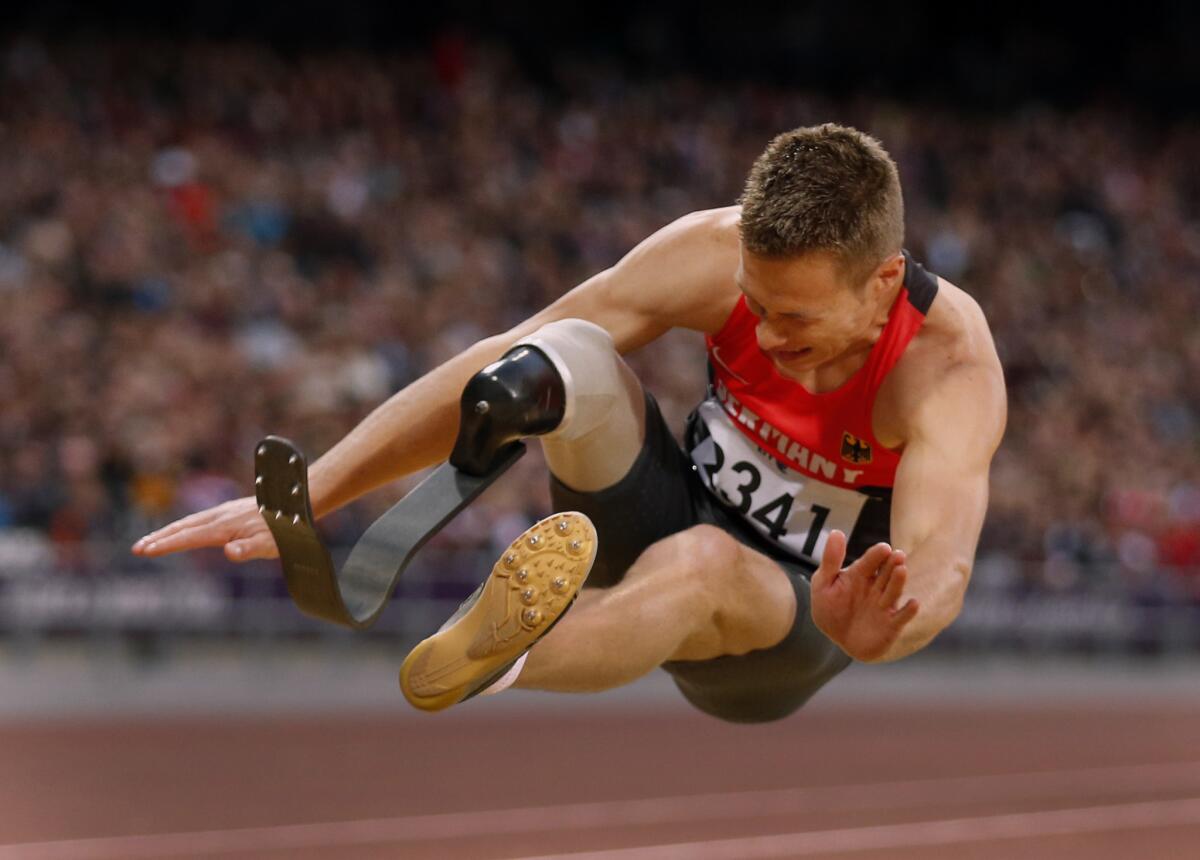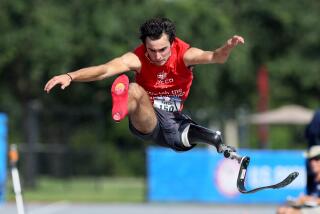Research could help disabled long jumper become eligible for Olympics

Germany’s Markus Rehm makes a world record jump of 7.14 meters in the men’s long jump at the 2012 Paralympics in London.
- Share via
German researchers plan to conduct a study of disabled long jumper Markus Rehm to determine if he should be allowed to compete in the Olympics.
In order to be eligible for the 2016 Summer Games, the single-amputee athlete — who lost his lower right leg in a boating accident when he was a teenager — must prove to international track officials that he gains no unfair advantage from competing with a carbon-fiber prosthetic.
See more of our top stories on Facebook >>
German Sport University Cologne hopes its analysis “will allow the scientists to objectively consider whether the advantage alleged by the International Association of Athletics Federation (IAAF), among others, exists,” the school said in a release.
The 27-year-old German, nicknamed “Blade Jumper,” holds the Paralympic record in his event at 27 feet, 6 inches and has out-jumped able-bodied competitors in the past.
Only one other athlete has participated in the Olympics using a carbon-fiber prosthesis. Oscar Pistorius, the now-disgraced sprinter, ran in the 2012 London Games.
Get the latest in sports with our free newsletter >>
The University of Colorado and the National Institute of Advanced Industrial Science and Technology in Tokyo will also take part in the study. Results are expected in early June, which would give Rehm time to qualify for both the Olympics and Paralympics in Rio de Janeiro.
MORE SPORTS NEWS
Jon Jones’ return to UFC octagon part of recovery
Appeals court upholds estimated $1-billion NFL concussion settlement
Soccer giants Leicester City and Paris Saint-Germain will meet at StubHub Center
More to Read
Go beyond the scoreboard
Get the latest on L.A.'s teams in the daily Sports Report newsletter.
You may occasionally receive promotional content from the Los Angeles Times.










